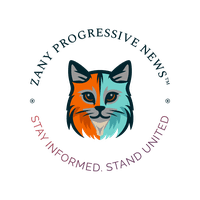Kari Lake told the small crowd gathered in a Arizona House of Representative meeting room on Monday that Google has “more power than any entity in the world when it comes to choosing our leaders here in America,” just before state Rep. Alexander Kolodin declared that he sees modern America as a “nascent totalitarian society.”
Lake, the failed 2022 Republican candidate for Arizona governor, and Kolodin, a freshman Republican state legislator from Scottsdale, were both highly critical of Big Tech’s influence on free speech and elections during the first meeting of the Arizona House of Representatives’ Committee on Oversight, Accountability and Big Tech.
During that meeting, Robert Epstein, a psychology researcher and longtime prominent Google critic who has been studying the search engine’s results and their influence on elections for about a decade, warned that the tech giant was already influencing elections in the United States by directing undecided voters toward particular candidates.
“If you took Google out of that picture, Kari Lake would have won,” Epstein said.
Lake lost her bid for governor to Democrat Katie Hobbs by more than 17,000 votes.
In 2019, Epstein testified to a U.S. Senate committee about a study he authored that concluded Google could have influenced enough undecided voters in the 2016 presidential election to persuade between 2.6 million and 10 million undecided voters to back Hilary Clinton. He claims that Google influences elections by prioritizing search results that include positive coverage of a particular candidate.
Google has claimed that his research is flawed, and his conclusion in that study hinged on the monitoring of search results of only 21 undecided voters out of 95, Slate reported at the time.
After expanding his research, Epstein claimed that biased Google results in 2020 shifted more than 6 million votes to President Joe Biden, who won the popular vote by more than 7 million votes.
Since then, Epstein has vastly expanded his efforts to monitor bias in Google search results, and on Monday, he claimed that his team has figured out how to determine exactly how many votes Google has influenced in a particular election. He said he used that method to conclude that Lake would have won last year’s election without Google’s influence, but he did not publicly share his methods for coming to that conclusion.
Epstein did not immediately respond to requests for clarification from the Arizona Mirror on how his team determines how allegedly biased search results directly correlate to a voter deciding to change their support from one candidate to another or how Google’s promotion of more highly-trusted sources over low-quality sources might impact the numbers.
Epstein, who is a Democrat, said he supported Clinton and Biden in the 2016 and 2020 presidential elections.
He also shared with the room, full of mostly Republicans — many of whom are 2020 and 2022 election deniers — that he believes Google intentionally promotes misinformation in search results as a form of misdirection, to keep Republicans focused on claims of voting machine-related fraud instead of its own efforts to manipulate elections.
“Google is the biggest, most powerful mind control machine that’s ever been invented,” Epstein said.
At the end of 2022, Epstein ramped up his research even more, starting the first nationwide monitoring system of Google search result bias with 11,169 registered voters in all 50 states and 2,282 children and teens. He said he raised more than $3 million to fund that effort, but told the committee on Monday that he was quickly running out of money and would soon have to start layoffs. In May, the New York Post reported that Epstein was touring the country to solicit donations for his research, but he said that many business leaders are scared to donate because they depend on Google for traffic to their businesses.
Epstein has been calling for regulation, monitoring and accountability for Google for the last several years, but said there is no way to make the company accountable without having a monitoring system like his in place.
“It’s about turning democracy into an illusion,” he said.
Epstein also shared that many media companies are scared to write critical pieces about Google because they also depend on the search engine for traffic. He said he believes that detractors will come after the monitoring system that he built, as well as him personally.
“I think if we have a full system in place next year, remember this day, because it will be one of the last days where I actually have a clean reputation,” he said. “Next year, I’m probably going to be accused of raping a large number of underaged people of all kinds of genders that don’t even have names yet.”
Following Epstein’s testimony, James Kerwin, an attorney with Mountain State Legal Foundation, spoke to the committee about possible ways that the state legislature could stop government officials from coercing or persuading social media companies to censor speech that they say is disinformation.
Lake addressed the crowd during the public comment period of the meeting.
“Big Tech is trying to destroy America through censorship,” she said.
She added that she believes Google should provide the information to the public on how many people got out of line when there were issues with tabulators in Maricopa County in the 2022 general election, a complaint she used in one of several failed attempts to convince the courts to overturn the results of the election.
Kolodin, the chair of the committee, promised that it would continue to look into Big Tech’s influence on voters, free speech and elections.
Rep. Cesar Aguilar, of Phoenix, the only Democrat on the committee, told Republicans present that, if they wanted their viewpoints to turn up higher on search results, they should adopt opinions that are more popular with voters.
SUPPORT NEWS YOU TRUST.






